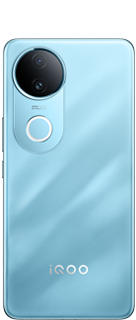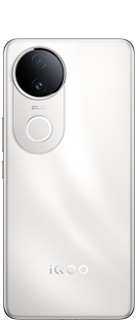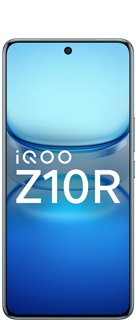Perplexity vs ChatGPT vs Gemini: 5 different challenges, who wins?
HIGHLIGHTS
Perplexity shines in factual research with real-time citations and transparency—ideal for academic and journalistic use.
ChatGPT dominates creative content generation with versatile writing styles, code drafting, and powerful GPT customization.
Gemini offers seamless Google integration, making it perfect for users in the Google ecosystem needing live data and workflow tools.

The competition among AI chatbots is no longer limited to casual conversation. As the need for quick, reliable and referenced internet research grows, the so-called “deep research” features of advanced bots, most notably Perplexity, ChatGPT, and Gemini, are transforming how information is consumed online. But when put to the test, which AI delivers the strongest performance in real-world challenges?
We have compared these three chatbots across five core challenges: research and information, general content creation, ease of use and interface, Integration with other tools, and cost and accessibility. Each chatbot has its advantages and disadvantages, hence choosing one as a winner is quite difficult. Here’s how these three chatbots stand against each other.
Research and information
Perplexity stands out for transparency, depth, and up-to-date, well-cited reports.
Perplexity’s deep research mode goes beyond summarising existing knowledge. It conducts iterative web searches, consults hundreds of sources, and rigorously refines its findings before assembling them into a detailed, referenced report. Citations are embedded in responses, enabling users to verify facts in real-time. Perplexity has scored as high as 93.9% on relevant factuality benchmarks and stands out for its transparent, reproducible research summaries. Its capability is particularly valued in academic, legal, and journalistic settings, where verifiable sourcing is paramount.
Although recent updates enable ChatGPT to browse the web and utilise custom GPTs for tailored research, it often does not prioritise providing detailed source lists. Its research is typically more general, strong on breadth and speed, but less reliable for original citations or deep analysis. Hallucination, or confident but technically incorrect statements, is still an issue, especially in complex, multi-step research.
Benefiting from Google’s search infrastructure, Gemini excels at surfacing up-to-date data and handling broad research queries. Its “Deep Research” upgrades have notably improved information accuracy. However, referenced sources are less clearly presented than with Perplexity, and synthesis sometimes prioritises Google-powered content over more comprehensive, independent sources.
General content creation
Companies and creators need tools for everything from drafting blog posts to scripting code to composing stories, and this is where ChatGPT dominates. OpenAI’s flagship is celebrated for its versatility: it can switch from a formal article to a Shakespearean sonnet, write functional code in multiple languages, or draft complex business emails. Ongoing improvements mean responsiveness and tone can be tailored to a remarkable degree.
Perplexity excels at factual, well-structured content, academic summaries, comparison tables, and research briefs. However, it lacks the creative improvisation and stylistic flair seen in ChatGPT’s best work and is less likely to generate fiction or humour by default.
Gemini can generate a wide variety of content (including images as part of Gemini Advanced), but it is more of a “Google assistant than a fully creative partner. Its outputs often borrow from or mimic established web content, which can make its results feel less original than those of ChatGPT.
Ease of use and user interface
When it comes to ease of use and interface, Perplexity offers a focused, minimalist design that puts research tools front and centre, minimising distractions and making the platform straightforward for users seeking information retrieval. ChatGPT features a full set of capabilities and is highly approachable, but its extensive features and customizable options can sometimes feel overwhelming for new users. In contrast, Gemini boasts a simple, clean interface that integrates seamlessly with Google apps, allowing for smooth onboarding, especially for those already familiar with Google’s ecosystem. Perplexity makes it easy to export and share findings, ChatGPT provides strong session and history management, while Gemini allows users to save work within Google’s suite of services effortlessly.
Perplexity’s clean design puts research tools front and centre, minimizing distractions, while Gemini’s Integration with Google’s services means anyone familiar with Docs or Gmail can start in seconds. ChatGPT’s interface is approachable, but the plethora of settings and GPT add-ons can appear daunting to new users.
Gemini is straightforward usability and Integration with existing Google workflows make it extremely accessible, especially for those already immersed in the Google ecosystem.
Integration with other tools
When it comes to Integration with other tools, Gemini’s Google backing pays off. It integrates natively with Docs, Sheets, Gmail, and Drive, allowing instant access to and from your stored files, emails, or collaborative documents. The underlying connectivity makes Gemini highly practical for daily workflows within Google’s ecosystem, especially for enterprise users.
OpenAI’s bot also supports numerous integrations through plugins and a robust API, making it very extensible, not just in consumer use but also for developers who want to build AI-powered workflows. However, it does not natively integrate as deeply into specific third-party platforms (like Google Workspace) without extra setup.
However, Perplexity can export findings or reports for use elsewhere, but its integrations are currently less extensive than Gemini’s or as customizable as ChatGPT’s APIs. It can be embedded in some workflows, but not as tightly linked to major productivity suites.
Cost and Accessibility
In terms of cost and accessibility, all three platforms provide generous free offerings, but with certain limitations. ChatGPT is available for free with its base model (GPT-3.5), though more advanced features such as GPT-4 and broader plugin support are reserved for paid subscribers.
Perplexity also allows unrestricted use of deep research but with daily limits, while its Pro version grants unlimited access and priority features. Gemini is largely free to anyone with a Google account, giving access to core functionalities, but some advanced or enterprise features may require a subscription or business account. Overall, all three services offer substantial free access, placing their advanced tools within reach for most users, but heavy users or those needing premium capabilities will need to consider a paid option.
Source: digit.in
Quester
Please sign in
Login and share






















